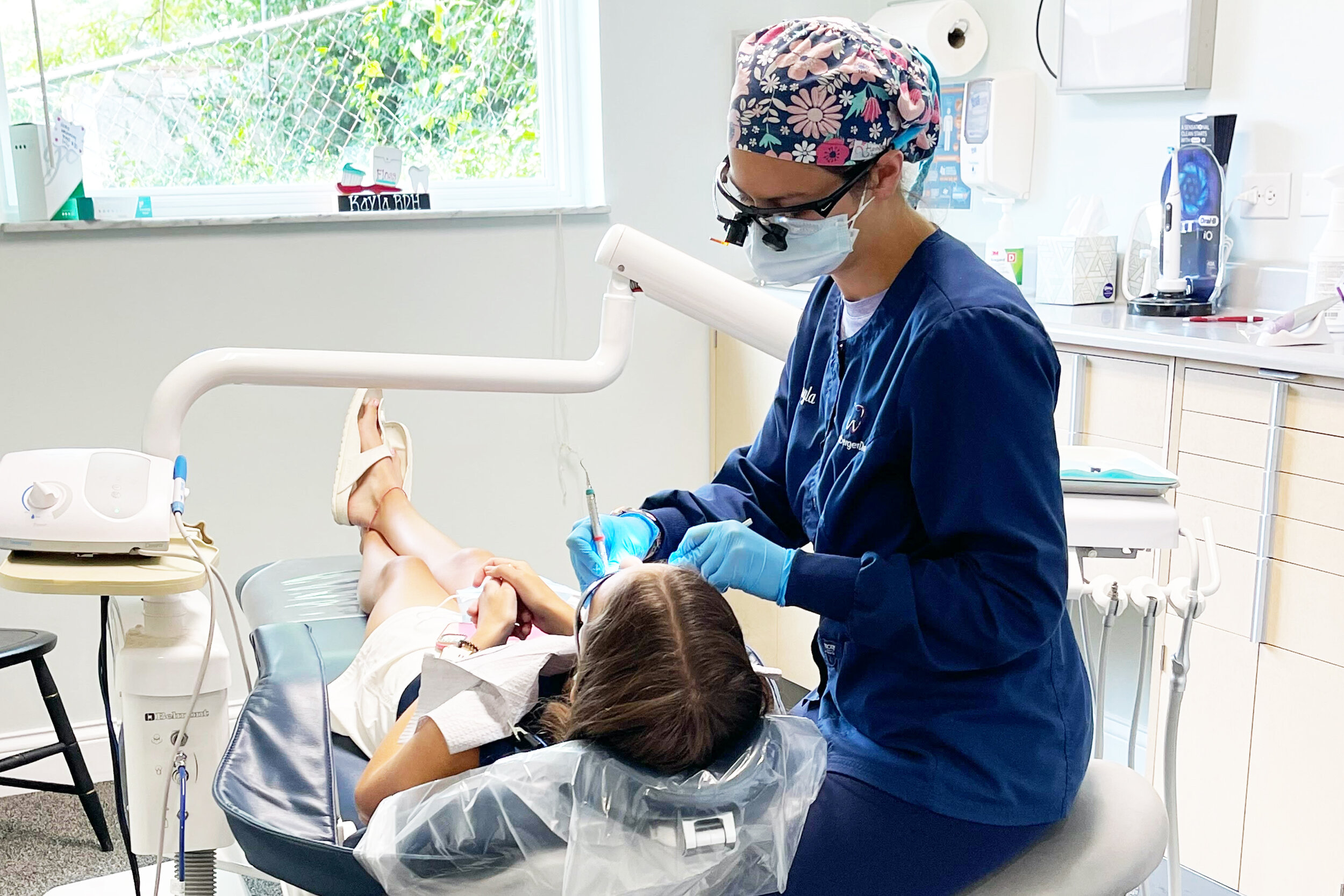Preventative
Cleaning and exam
A cleaning and exam every six months is the best way to help ensure optimal dental health. During your dental cleaning, our registered dental hygienist will remove plaque and tartar that you may not be able to remove at home. This reduces your risk of forming gingivitis or periodontal (gum) disease. Measurements will also be taken of the bone around each tooth to catch any signs of gum disease. The hygienist will also polish your teeth, removing stains and leaving your teeth and mouth feeling refreshed.
Dr. Weisenberger will perform your exam and alert you to any problems that may arise. Digital x-rays will be reviewed for cavities, failing restorations, bone loss, cysts or infections in the nerve of teeth. Your oral screen will allow her to note any changes to teeth, restorations or gums. Your oral cancer screening will also be completed at this time.
The best way to catch problems is to identify them before they start. Your cleaning and exam help establish a solid foundation for complete oral health.
Periodontal Therapy
Periodontal disease or gum disease is caused by bacteria and calculus forming around the tooth and its bony structures, resulting in loss of bone and the supporting structures. If periodontal disease goes untreated, it can not only cause tooth loss but also is a contributor to heart disease and diabetes. If we note that the bone levels around your teeth are lower than normal, we may suggest a different type of cleaning called scaling and root planing, also referred to as deep cleaning. This cleaning allows us to remove the bacteria and calculus under the gums. With proper maintenance, bone levels can increase and the foundation for a fabulous smile can be restored.
Fluoride
At the end of your cleaning, you will be offered an in- office fluoride treatment. This treatment can reduce your risk of cavities up to 30%. This is a great treatment for everyone, but especially for those who are at a greater risk for developing cavities.
Nutritional Counseling and Cavity Prevention
Each patient will be assessed for their risk of decay. Looking at your dental and medical history we will learn if you are at a higher risk for cavities. We will also discuss foods and drinks that increase your risk for cavities and what changes you can make to lower your risk.
Night Guards
For those suffering from TMD or clenching and grinding, a night guard may be prescribed. Night guards, or occlusal guards, can help relieve jaw pain, tension headaches and even protect your teeth from fractures due to the extreme pressure that can be placed on them. Occlusal guards are custom made for each patient and delivered in office to make sure the fit is correct.

